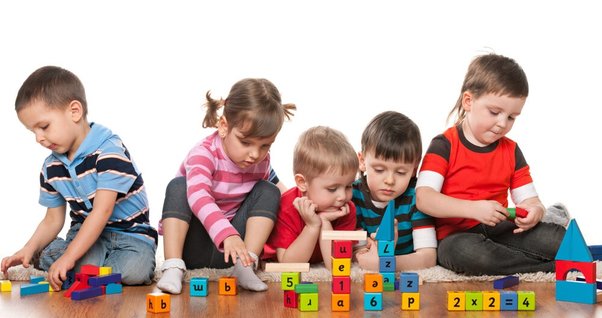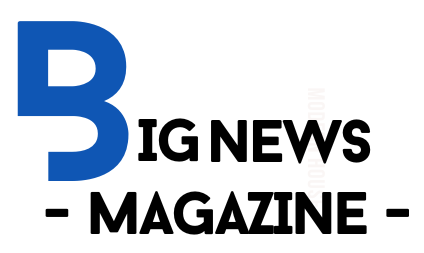News
Enhancing Early Childhood Education: The Role of Educational Tools in Preschool Learning

The early years are the building blocks of childhood development. During this crucial period, young minds are like sponges, absorbing information and experiences that shape their future learning path. As parents and educators, it’s our responsibility to foster a nurturing environment that ignites curiosity, encourages exploration, and lays the foundation for lifelong learning. This is where educational tools come in, not as replacements for love and interaction, but as powerful allies in enhancing preschool learning.
Gone are the days of rote memorization and rigid schedules. Modern preschool education embraces playful learning, where discovery takes center stage and joy becomes the driving force. The right educational tools can transform learning into a captivating adventure, engaging young minds on multiple levels and supporting their holistic development.
Why Educational Tools Matter in Preschool Learning:
- Spark Curiosity and Ignite a Love of Learning: Engaging toys and resources pique children’s natural curiosity and encourage them to ask questions, experiment, and explore. This intrinsic motivation sets the stage for a lifelong love of learning.
- Develop Essential Skills: Preschool is a time for building foundational skills like fine motor skills, language development, problem-solving, and social-emotional intelligence. Educational tools provide opportunities for practicing and mastering these skills in a fun and engaging way.
- Cater to Diverse Learning Styles: No two children learn the same way. Educational tools offer a variety of learning experiences, catering to visual, auditory, kinesthetic, and other learning styles, ensuring every child can find their own path to success.
- Make Learning Fun and Interactive: Play is the natural language of young children. Educational tools that incorporate playful elements like games, songs, and stories make learning enjoyable and memorable, ensuring a positive association with education.
- Support Development across Domains: Preschool curriculum focuses on various developmental domains, from physical and cognitive to social and emotional. Educational tools can be targeted to specific areas, providing targeted support and promoting holistic development.
Enhancing Your Preschool Toolkit: Tools from LHBH to Nurture Young Minds:
- Sensory Play Kits: Stimulate young senses with colorful textures, tactile objects, and engaging sounds. These kits promote sensory development, lay the foundation for future learning, and ignite wonder in little explorers.
- Interactive Storybooks: Bring stories to life with vibrant illustrations, captivating music, and fun character interactions. Spark imagination, language skills, and critical thinking through engaging narratives.
- Building Blocks and Construction Sets: Encourage creativity and problem-solving through open-ended building activities. Develop fine motor skills, spatial reasoning, and collaborative play as children construct their own miniature worlds.
- Musical Instruments: Introduce the joy of music with age-appropriate instruments like keyboards, drums, or ukuleles. Foster creativity, rhythmic skills, and self-expression as young musicians find their voices.
- Coding and Robotics Kits: Make technology accessible and fun with playful coding kits that introduce basic programming concepts and build problem-solving skills. Children can program simple robots, animations, and games, paving the way for future tech explorations.
- Science Experiment Kits: Ignite a passion for science with engaging kits that allow children to explore the wonders of the natural world through hands-on experiments. Build scientific curiosity and critical thinking skills as they conduct simple chemistry experiments, build erupting volcanoes, or learn about animal habitats.
- Arts and Crafts Supplies: Unleash creative instincts with vibrant paints, colorful clay, and engaging art projects. These tools encourage fine motor skills, visual-spatial awareness, and self-expression, allowing children to paint their own masterpieces and explore their artistic potential.
Remember, the best educational tools are those that complement your existing preschool curriculum and cater to your children’s individual interests and learning styles. As you explore the diverse selections on LHBH, be sure to involve your children in the process. Let them choose tools that spark their curiosity and fuel their imaginations.
Understanding Learning Styles: Tailoring At-Home Education to Your Child
Beyond the Tools: Creating a Playful Learning Environment
Educational tools are invaluable aids, but they are not substitutes for human interaction and a stimulating learning environment. Here are some additional tips to enhance your preschooler’s learning journey:
- Dedicate a play space: Create a designated area filled with engaging toys, books, and materials that your child can access freely. Ensure the space is well-lit, organized, and safe.
- Read often and make it interactive: Make reading a daily ritual, using animated voices and sound effects to bring stories to life. Encourage children to ask questions, make predictions, and engage in discussions about the characters and plot.
- Incorporate play-based learning into everyday activities: Turn chores into learning opportunities. Let your child measure ingredients while baking, calculate laundry detergent doses, or create a budget for their allowance. Everyday tasks can become valuable lessons in math, science, and financial literacy.
- Connect learning to real-world experiences: Plan educational outings to museums, zoos, libraries, or science centers. These enriching experiences provide firsthand learning opportunities and solidify abstract concepts. Let your child observe animals at the zoo, explore planets at the science center, or participate in interactive exhibits at the museum. These outings spark curiosity, ignite questions, and make learning come alive.
- Embrace technology responsibly: Utilize educational apps, websites, and online learning platforms to supplement your child’s learning. However, maintain boundaries and encourage balanced screen time to ensure healthy development. Interactive educational games, language learning apps, and virtual field trips can offer valuable learning experiences when used wisely.
- Make learning fun!: Laughter and enjoyment are key ingredients in any successful learning experience. Create a relaxed and playful atmosphere, incorporate humor into your interactions, and celebrate accomplishments to make learning a joyful journey. Let your child’s natural curiosity guide you, and don’t be afraid to get messy, sing silly songs, and explore the world together with wonder and enthusiasm.
By combining the right educational tools with a nurturing environment and playful learning strategies, you can create a magical space where preschoolers thrive. With [Website Name] as your partner, you can equip your child with the resources they need to explore, discover, and build a strong foundation for lifelong learning. So, embark on this exciting journey together, watch your child’s mind blossom, and witness the boundless possibilities that unfold when play and learning become one.

You must be logged in to post a comment Login